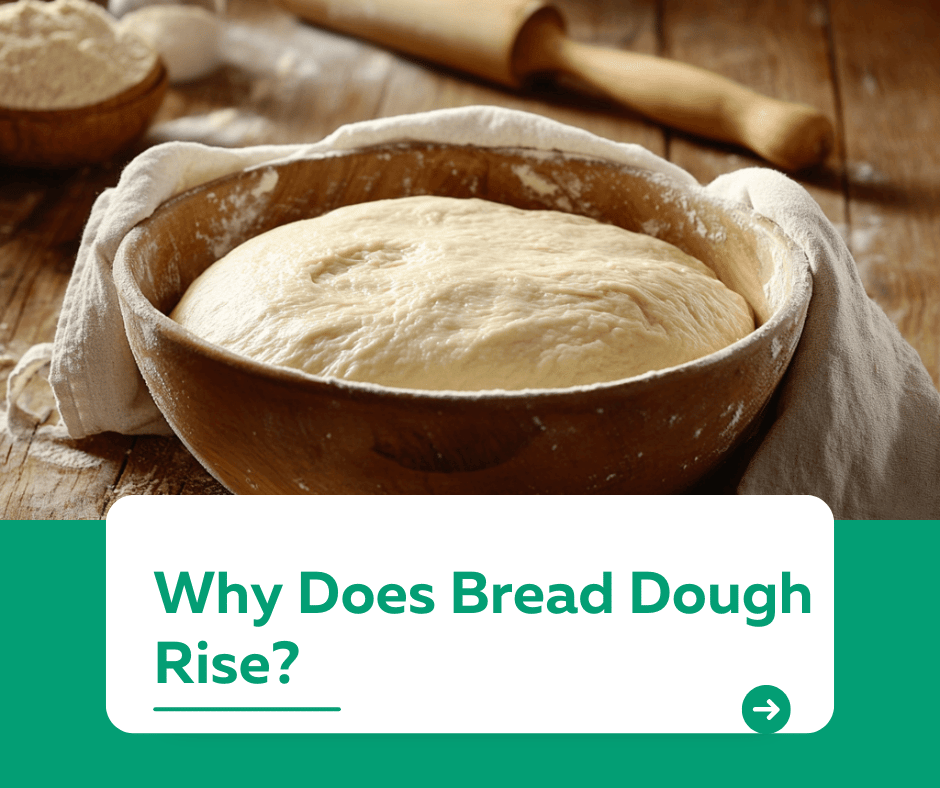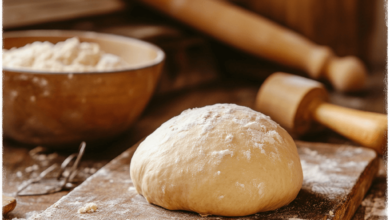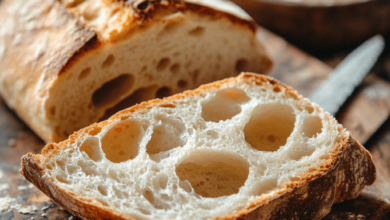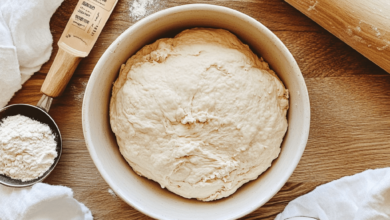Why Does Bread Dough Rise?

Introduction
“Why does bread dough rise?”
Watching bread dough double in size can feel magical, but it’s actually a fascinating scientific process. Understanding why dough rises not only helps you bake better bread but also deepens your appreciation for the art and science of baking. In this article, we’ll explore the role of yeast, gluten, and fermentation in making bread dough rise.
1. The Role of Yeast in Dough Rising
Yeast is the star player in the rising process. It’s a single-celled organism that feeds on sugars present in the dough, producing carbon dioxide gas and ethanol as byproducts through fermentation.
- How It Works:
- Yeast consumes sugar from flour or added sweeteners.
- During fermentation, carbon dioxide gas forms bubbles that cause the dough to expand.
- Why It Matters:
- The gas bubbles create the airy texture of bread.
- The ethanol contributes to the flavor profile during baking.
Fun Fact: Active dry yeast and instant yeast are the most common types used in home baking.
2. Gluten: The Framework for Rising
Gluten, a protein found in wheat flour, acts as the structural backbone of bread dough.
- How It Works:
- When flour is mixed with water and kneaded, gluten proteins form a stretchy, elastic network.
- This network traps the carbon dioxide gas released by yeast, allowing the dough to rise.
- Why It Matters:
- Without gluten, the gas would escape, and the dough wouldn’t expand properly.
- The elasticity of gluten gives bread its chewy texture.
Pro Tip: Knead your dough thoroughly to develop a strong gluten network.
3. Fermentation: The Secret to Flavor and Texture
Fermentation is the process that occurs as yeast works its magic over time.
- What Happens During Fermentation:
- Yeast produces carbon dioxide and ethanol.
- Organic acids and enzymes break down complex starches, enhancing the dough’s flavor.
- Benefits of Fermentation:
- Improves the taste and aroma of bread.
- Helps create a tender crumb and golden crust.
Tip: Allowing your dough to ferment slowly in the refrigerator enhances its flavor.
4. Factors That Influence Rising
Several factors can affect how well your dough rises:
- Temperature: Warm environments (around 75–80°F) speed up fermentation, while cooler temperatures slow it down.
- Humidity: Moisture in the air helps prevent the dough from drying out.
- Type of Yeast: Fresh yeast may act differently than active dry or instant yeast.
- Flour Type: High-protein flours create stronger gluten networks, supporting better rising.
Conclusion
Bread dough rises because of the interplay between yeast, gluten, and fermentation. Yeast creates gas, gluten traps it, and fermentation adds depth of flavor and texture. By understanding these processes, you can bake bread with confidence and appreciate the science behind every loaf.
For more baking tips and kitchen insights, visit our Kuestion.com.




